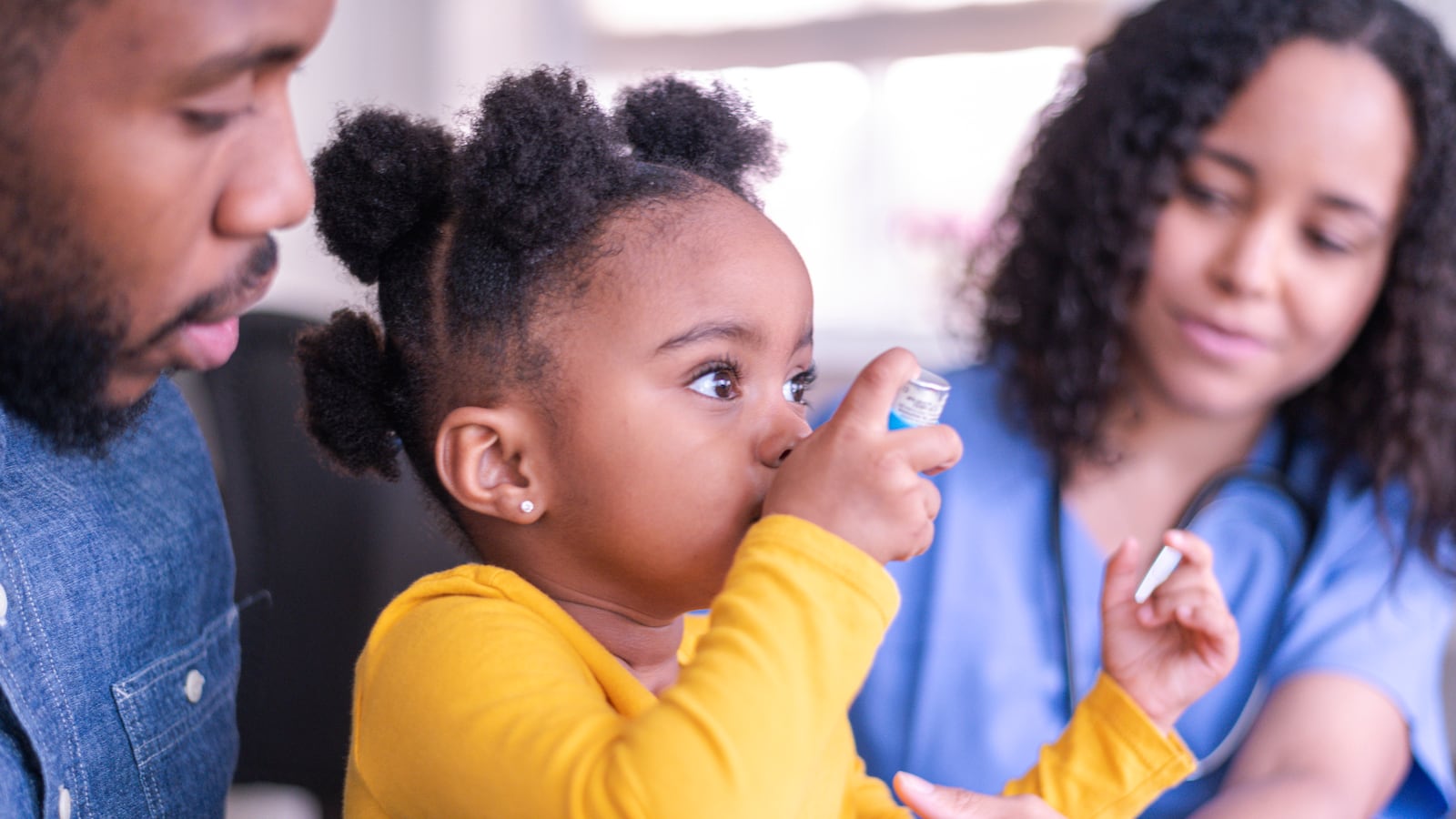Shortness of breath. Coughing. Chest tightness.
These are all symptoms of COVID-19, the rapidly spreading respiratory illness that’s impacted everyday life in the U.S. But these are also symptoms of an impending asthma attack.
In Newark, where one in four children live with asthma — and children with that chronic illness are hospitalized at 30 times the national rate — many parents are shouldering even more anxiety.
Experts say that children make up a small percentage of serious cases of COVID-19 cases. But some parents say they’re having a hard time distinguishing between asthma and symptoms of the new virus, though experts say differentiating features of COVID-19 include fevers and gastrointestinal issues. Other parents are worried about how to protect their asthmatic children during the outbreak.
“I haven’t heard so far so much about young kids being severely ill,” said Stephanie Lovinsky-Desir, a Columbia University pediatric pulmonologist who studies children with asthma who live in urban areas. “But that doesn’t mean we should let our guard down, especially with kids who have chronic diseases like asthma.”
By Thursday, there were at least 742 confirmed cases of COVID-19 and 9 deaths in the state. In an effort to curb the spread of the virus, the Newark school district canceled all classes, as of last Friday, and by Monday of this week, New Jersey Gov. Phil Murphy ordered any schools that were still open in the state to close.
Fifteen-year-old Ebony Ferguson has been in intensive care due to asthma twice in the past six months, so her mother, Nigeria Womack, fears how severe her reaction might be were she to contract the coronavirus.
“Her immune system is already compromised. I’m definitely keeping her in and wiping constantly like there’s no tomorrow,” Womack said. “But you can barely get products because everything is sold out.”
Ferguson’s asthma has been flaring up this month because of the weather changes.
“She’s really prone to every little thing,” she said.
Another Newark parent, Qadiryyah Marshall, is making sure her daughter who has asthma isn’t near large crowds and washing her hands. But she hasn’t been “particularly concerned” about the virus because her family’s been following recommended guidelines, which include good hand hygiene and coughing into elbows and sleeves. “It’s not that I’m taking no precautions,” she said. “But I feel like if we’re going to get it, we’re going to get it.”
One precaution public health experts are recommending: ensuring asthma sufferers have at least a month’s worth of medication prepared ahead of time, something the city’s health director Mark Wade stressed during the city’s Tuesday night press briefing.
“The most important part is that their asthma remains controlled and that children always have a rescue inhaler on them. Though this is the same advice we’d give any other day, now it’s perhaps more pressing,” Rutgers pulmonologist Andrew Berman said. “Parents should make sure their children have an action plan, so that if their asthma starts to act up, they know what to do.”
The American Lung Association’s Chief Medical Officer Albert Rizzo said it’s important that all Americans continue coronavirus mitigation efforts so that the healthcare industry isn’t overwhelmed. That way, any person in need of emergency care, including a child with asthma, is able to get the help they need.
“I’d try to prevent a flare up, but if a child is in distress, go to the emergency room,” Rizzo said. “There should be ongoing communication and relationship with their physician, so if symptoms do change, a phone call or email can be made.”
Though parents shouldn’t panic, Lovinsky-Desir said they’re correct to take extra precautions during this outbreak.
While having asthma doesn’t make people more susceptible to the virus, it can worsen symptoms. Organizations such as the Centers for Disease Control and Prevention and the World Health Organization have included chronic asthma sufferers on the list of people who are most at risk.
“Any time a child with asthma develops a virus, they’re at a greater risk of having a more severe disease and it leading to an asthma exacerbation,” Lovinsky-Desir said. “That’s why we recommend all asthmatic kids get a flu shot, because we know the flu behaves more aggressively in a child with asthma.”
While Womack said she’s making sure her daughter is taking her medication and cleaning the house on a daily basis, she’s unsure about what’s going to happen in the coming weeks.
“I’m still fearful,” she said.

